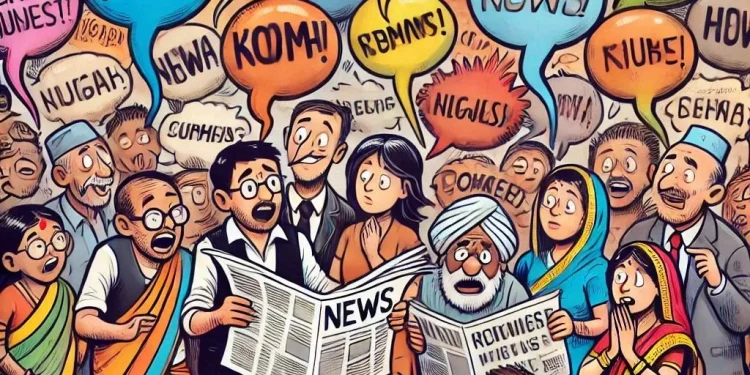A recent study has uncovered that rising nationalism in India is a significant factor driving the dissemination of fake news among ordinary citizens. The research indicates that for many, the emotional drive to reinforce national identity outweighs the importance of factual accuracy.
The study highlights that right-wing networks in India are more organized and effective in propagating nationalistic false stories compared to their left-wing counterparts. Notably, there is an overlap between sources of fake news on Twitter and support networks for powerful leaders.
Participants in the research granted extensive access to their smartphones over a seven-day period, allowing for an in-depth analysis of their sharing behaviors on platforms like WhatsApp and Facebook. Findings revealed that a distrust of mainstream news outlets leads individuals to share information from alternative sources without verification, under the belief that they are disseminating the “real” story.
The overwhelming volume of digital information exacerbates the issue, with users often relying on indicators such as the number of comments on a post or the sender’s identity, rather than verifying the original source. This trend has had severe consequences; in the past two years, at least 31 people have been killed in India due to rumors spread on social media or messaging apps.
The research also compared the situation in India with that in Kenya and Nigeria. In these African nations, national identity was found to be less significant in the spread of fake news. Instead, financial scams and health scares were more prevalent among widely shared false stories.
This study is part of Amironews’ initiative to investigate the global impact of disinformation and explore potential solutions to this growing problem.














